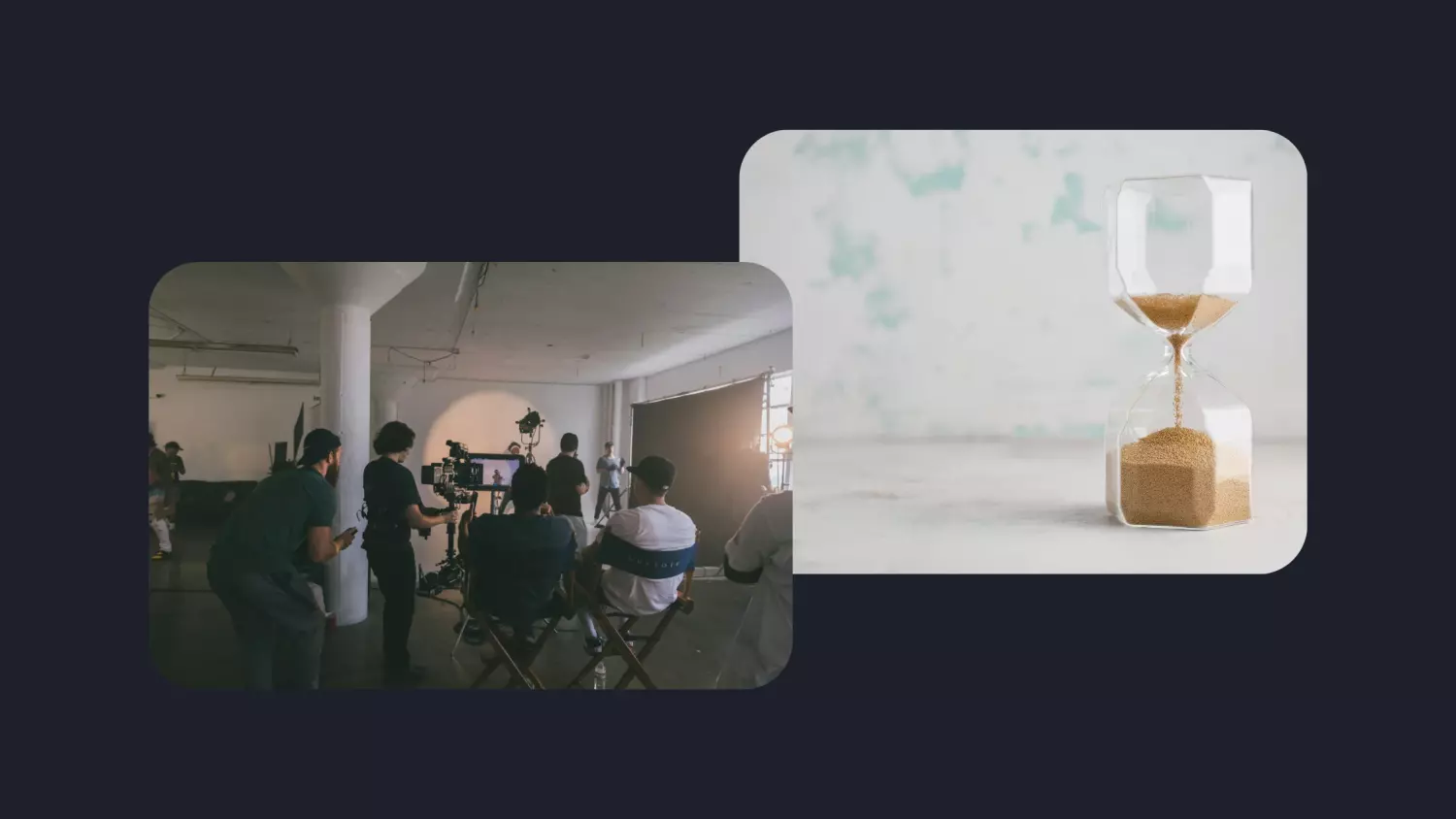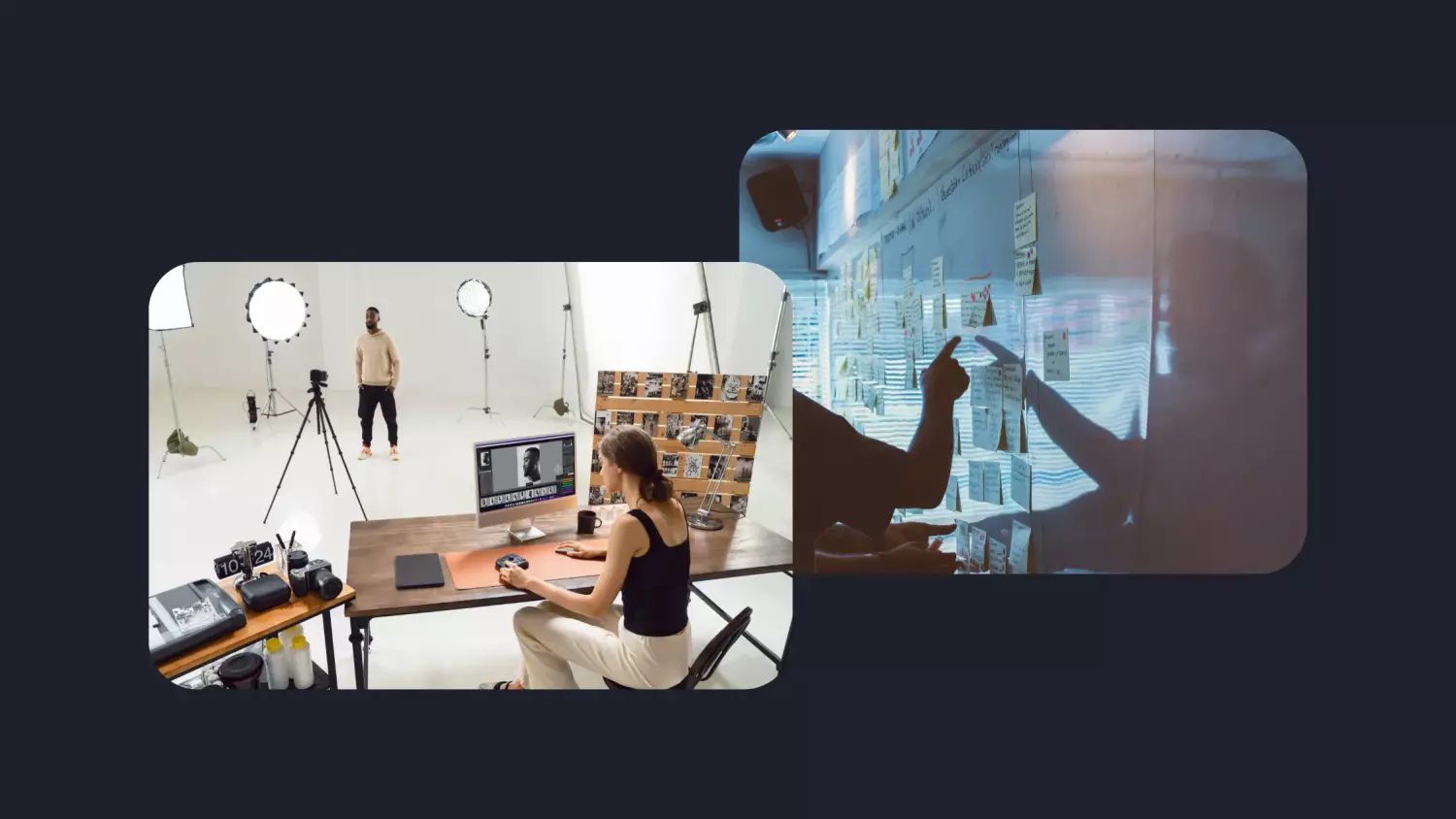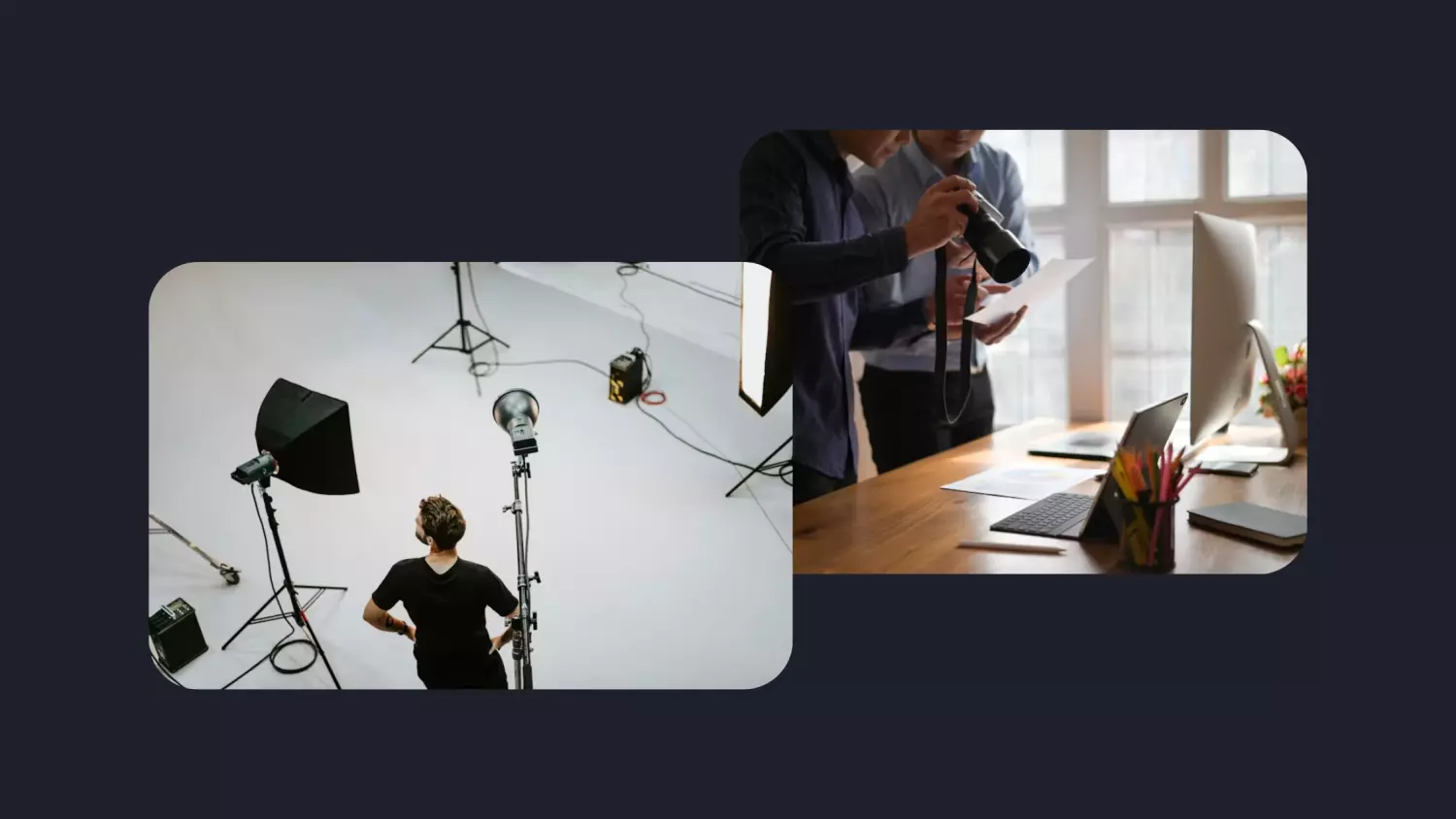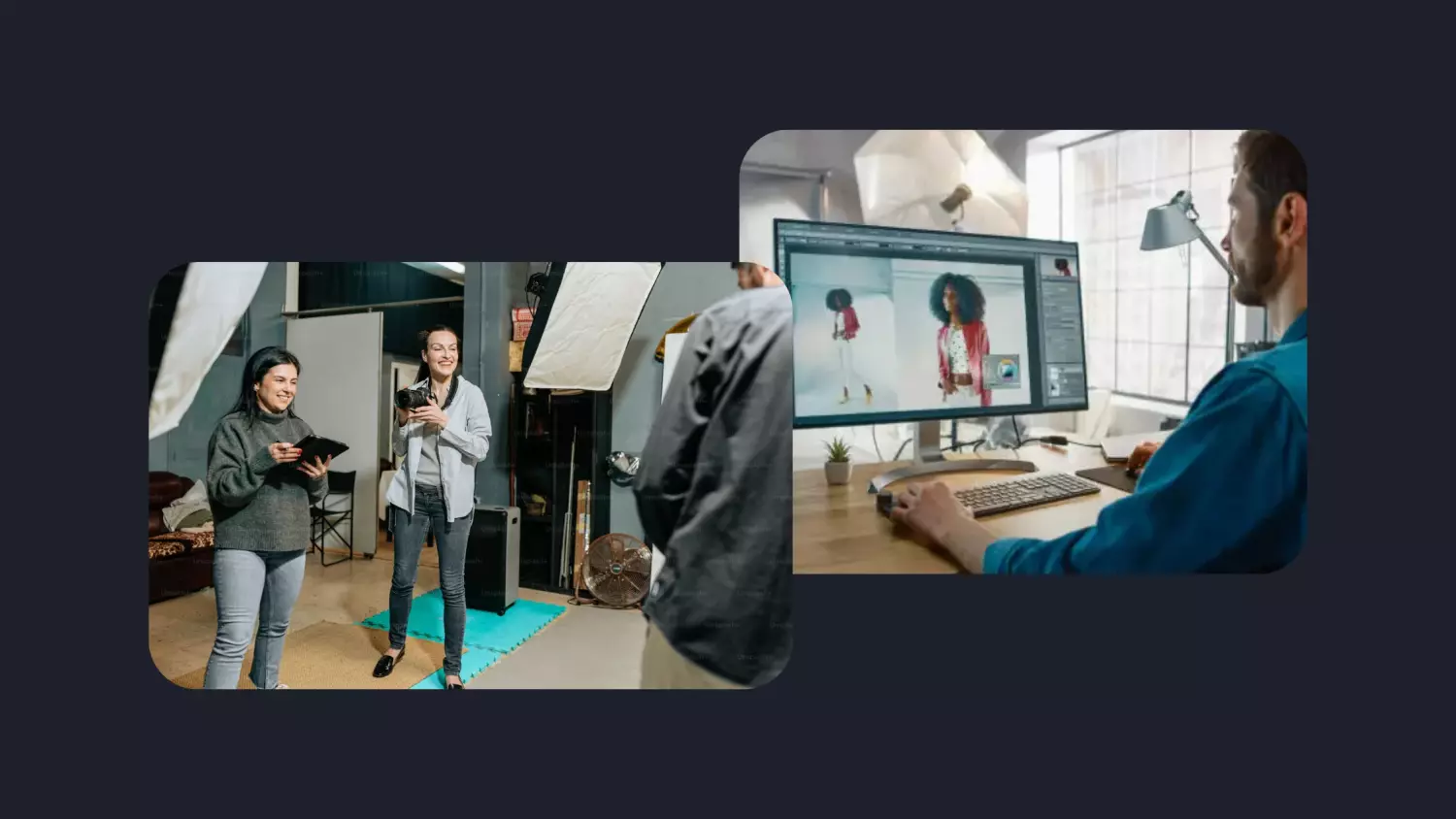If you’ve ever worked in a studio setting or work in one now, you know how chaotic content production can get. The constant back-and-forth, chasing approvals, rescheduling shoot times, and adjusting project deadlines can quickly create a tangled mess of tasks. With multiple shoots happening simultaneously, teams spread across different locations, and deadlines that can’t be missed, staying organised is a real challenge.
The growing complexity of content production
Studios today are producing more content than ever before. With the rise of e-commerce, social media, and digital marketing, the demand for high-quality visuals, video content, and photography is at an all-time high. Managing this increasing load is no small feat.
Teams often work on multiple projects with overlapping deadlines, making it hard to understand what’s happening and when clearly. Combine this with the various moving parts—approvals, equipment booking, coordination with freelancers, and internal team collaboration—and you’ve got a recipe for confusion and inefficiency.
Traditional spreadsheets or disconnected project management tools can only do so much. As studios grow, a more integrated, streamlined system becomes apparent.
The challenges of managing content production without a structured calendar
- Lack of clear visibility: Without a calendar overview, it’s easy to lose track of tasks and deadlines, leaving your team scrambling to stay on top.
- Resource conflicts: Double-booking sets, equipment, or crew can happen more often than you’d like, causing delays and frustration.
- Missed deliverables: Without scheduling deliverables, key shots might be missed, or the wrong content might be produced, throwing off the entire project.
- Lack of alignment across teams: In a studio, coordination between creative, production, and post-production teams is crucial. Without a centralised calendar, aligning everyone on key deliverables becomes challenging.
- Rushed execution: When schedules aren’t planned, shoots become rushed, impacting the final output and the team’s morale.
- Unmonitored progress: Not having real-time updates on shoot progress makes it harder to spot issues early and avoid potential delays.
- Team confusion: Without clearly assigning roles and resources, your team can get mixed signals about who’s doing what, leading to miscommunication.
- Location overlaps: Not pre-booking set locations leads to location conflicts, causing last-minute changes and stress on shoot days.
- No awareness about conflicts: Without a centralised view of tasks, conflicts like double bookings may not be caught until the day of the shoot, creating unnecessary problems.
How calendar integration transforms studio workflows
In content studios, where multiple projects and teams are constantly in motion, calendar integration is the central hub that keeps everything aligned.
Here are a few ways calendars can help studios improve efficiency and make the production process smoother for everyone:
Unified project view: Calendar integration offers a top-down view of all ongoing projects. This allows studio managers to track each step of the production process—no more flipping between spreadsheets, sticky notes, or separate tools. Having everything in one place makes it easy to monitor progress and identify potential delays early on.
Automated reminders and updates: Whether it’s notifying a photographer about a shoot or reminding the marketing team of a content deadline, calendar alerts keep everyone on track. If the schedule changes, the calendar updates automatically and notifies the right teams. Just subscribe to the production calendar, and all tasks sync to your calendar.
Simplified resource allocation: Studios often have multiple resources like camera equipment, editing suites, or talent. With a shared calendar, resource allocation becomes a breeze. You can easily see which teams are using what resources, ensuring no scheduling conflicts. For example, you can reserve studio space or allocate talent without worrying about overbooking or underutilisation.
Smoother collaboration across teams: Communication gaps can be a major issue with various teams working on the same project. Calendar integration bridges these gaps by providing a single source of truth. Everyone knows what’s happening and when, whether it’s the photography team, the content creators, or the marketing department. This enhances communication and ensures that tasks are completed on time.
Deadline tracking for better accountability: Missed deadlines can lead to client dissatisfaction and impact a studio’s bottom line. A calendar integration ensures that deadlines are visible to all teams involved, creating a system of accountability. Automated alerts give team members enough time to prepare, ensuring they complete tasks on time and preventing those last-minute fire drills that create unnecessary stress.
Scalability and flexibility: As your studio grows, the complexity of managing multiple projects increases. Calendar integration is scalable, meaning the system adapts whether you manage one project or fifty. Update schedules and change dates or times; the changes are instant for everyone to view.
To sum up…
Without calendar integration, studios face an uphill battle in managing scattered workflows, misaligned teams, and inconsistent content output. With a centralised calendar, teams can gain much-needed clarity and coordination. It allows for a seamless flow of tasks, ensuring every team member is aligned, deadlines are met, and content is delivered consistently.
Beyond just better organisation, calendar integration fosters more robust communication across departments, ensuring that feedback loops are streamlined and strategic goals are met. The result? Higher-quality content that’s on time and on brand every time.
If you are looking to simplify complex workflows, improve communication, and meet your content goals more efficiently, now’s the time to consider a solution like Lets Flo. It’s built to streamline content production and help teams hit deadlines quickly.
Why struggle with disorganisation when a solution is within reach?
Book a Demo!





